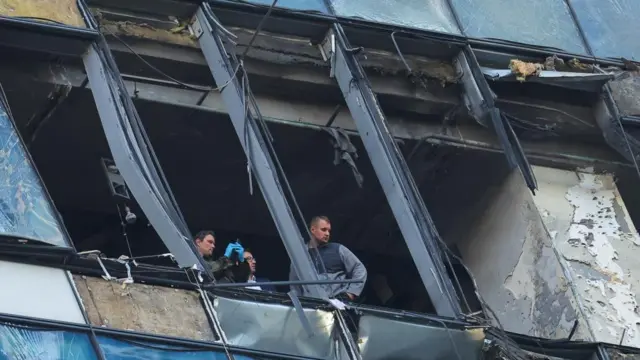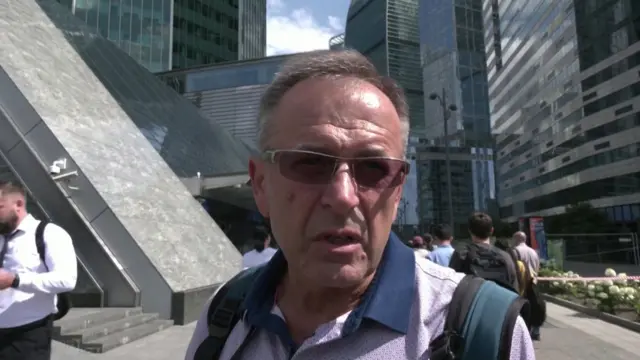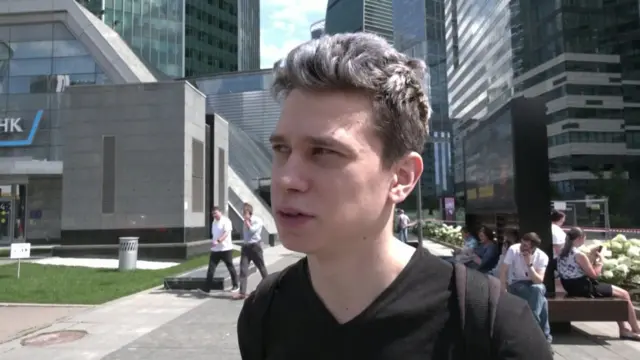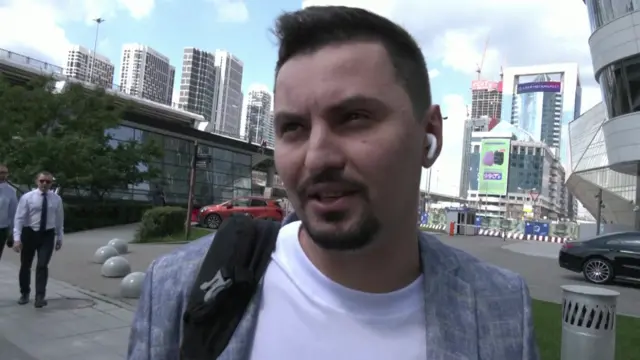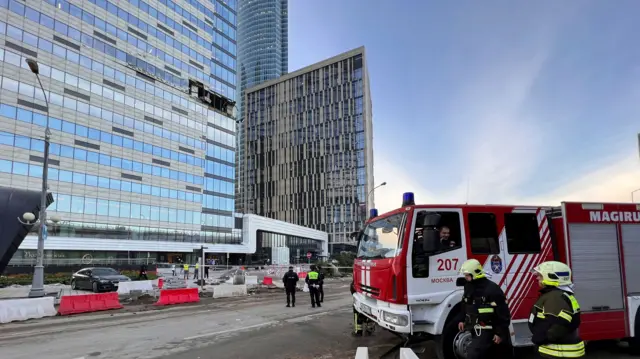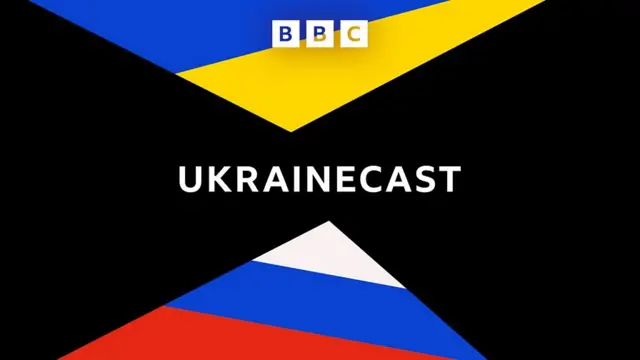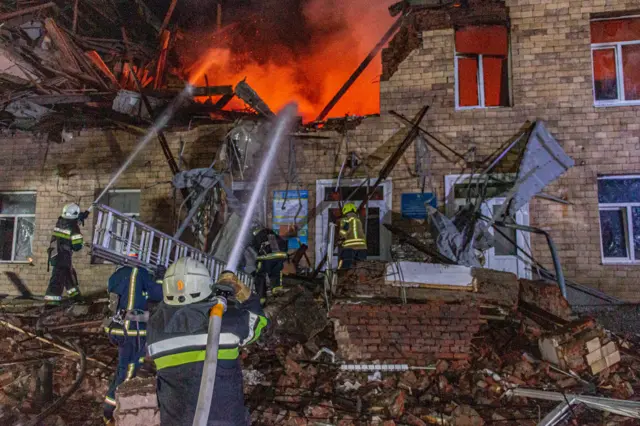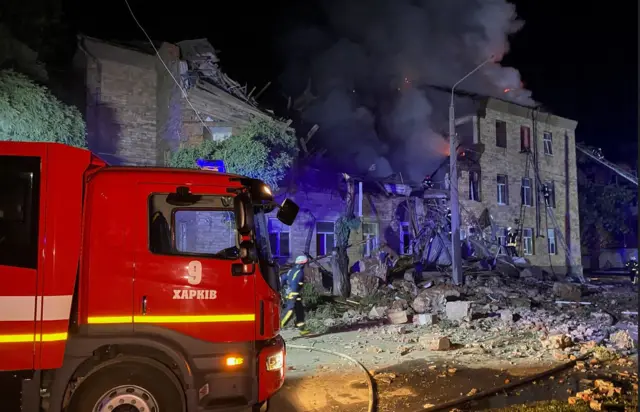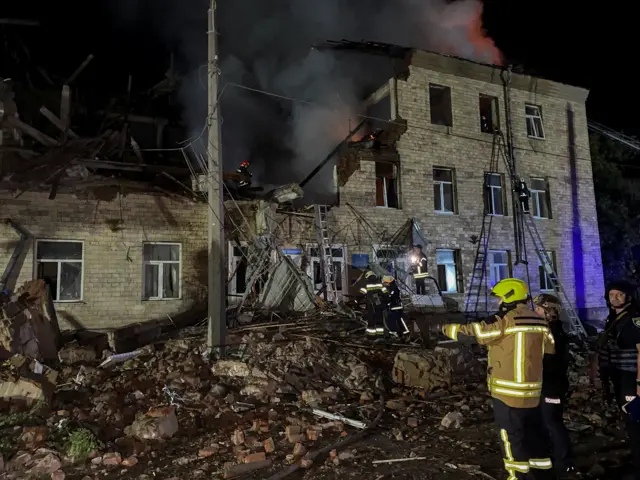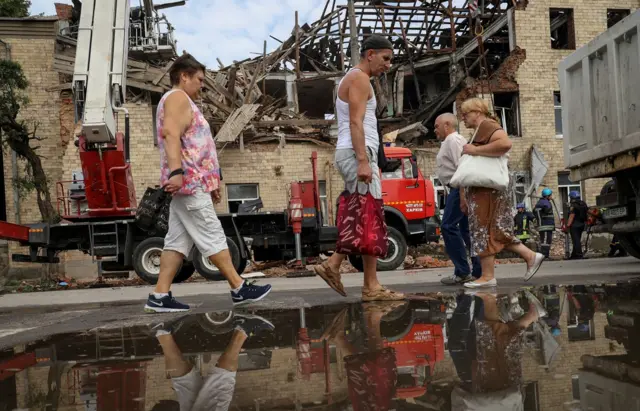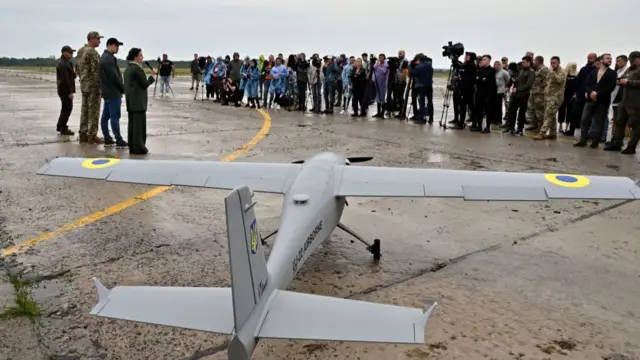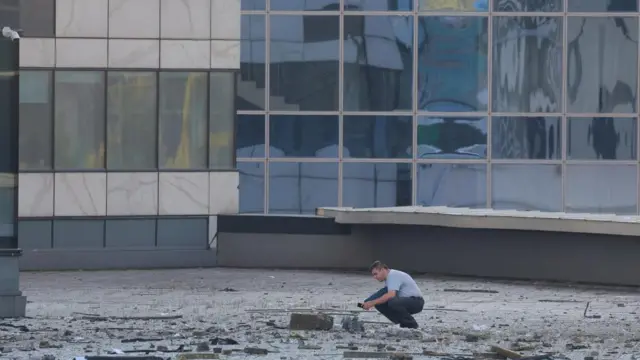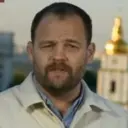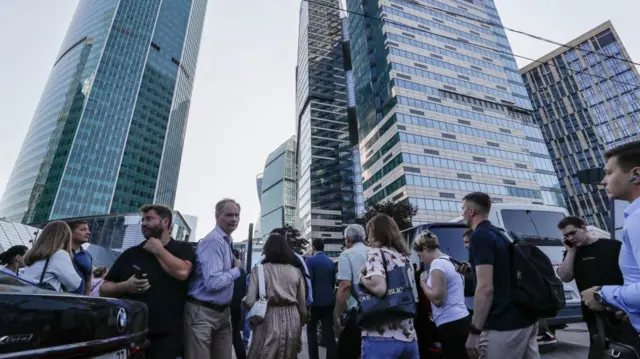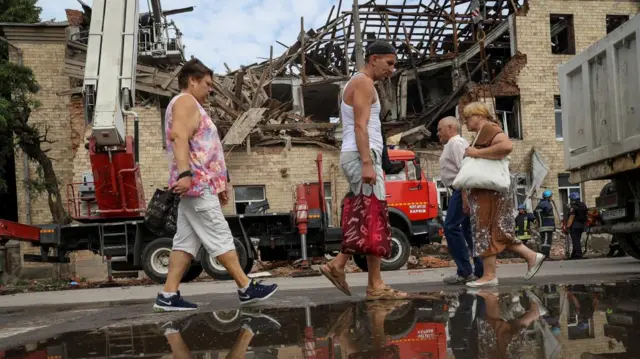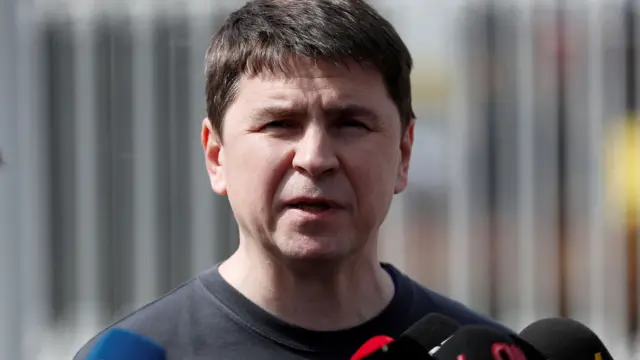Thank you for joining uspublished at 17:03 BST 1 August 2023
That's it from us. Thank you for joining our live coverage, as we reported on the latest developments and analysis from Russia and Ukraine on the 524th day of the war.
If you would like to stay up to date with the latest developments, you can read more here.
And the BBC's Verify team analysed what we know so far about the latest drone blasts in Moscow, which you can read here.
Today's page was edited by James Harness, Malu Cursino and Alexandra Fouché. Our writers were Kathryn Armstrong, Emily McGarvey, Ali Abbas Ahmadi, Jacqueline Howard, Gem O'Reilly and Beth Timmins.
